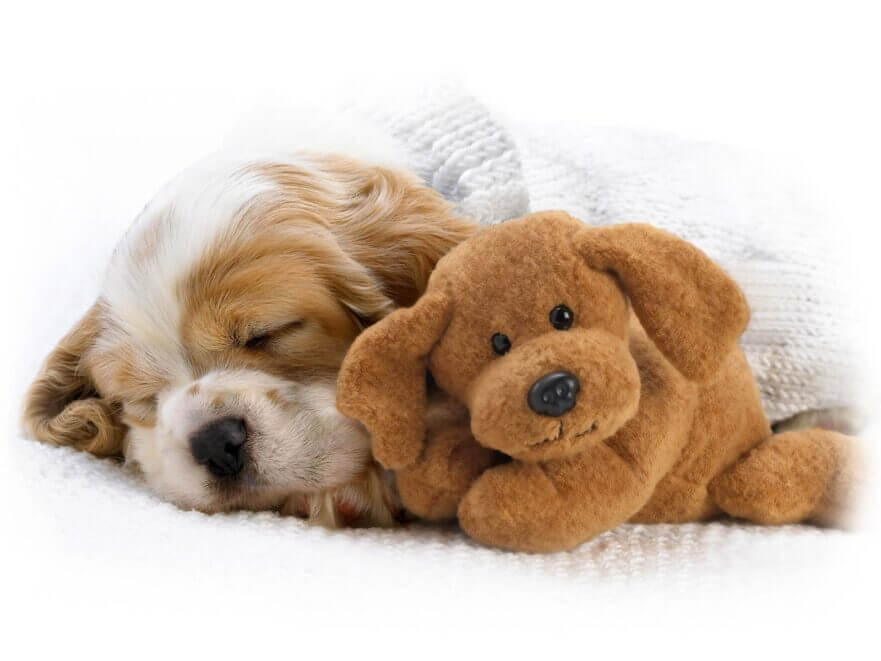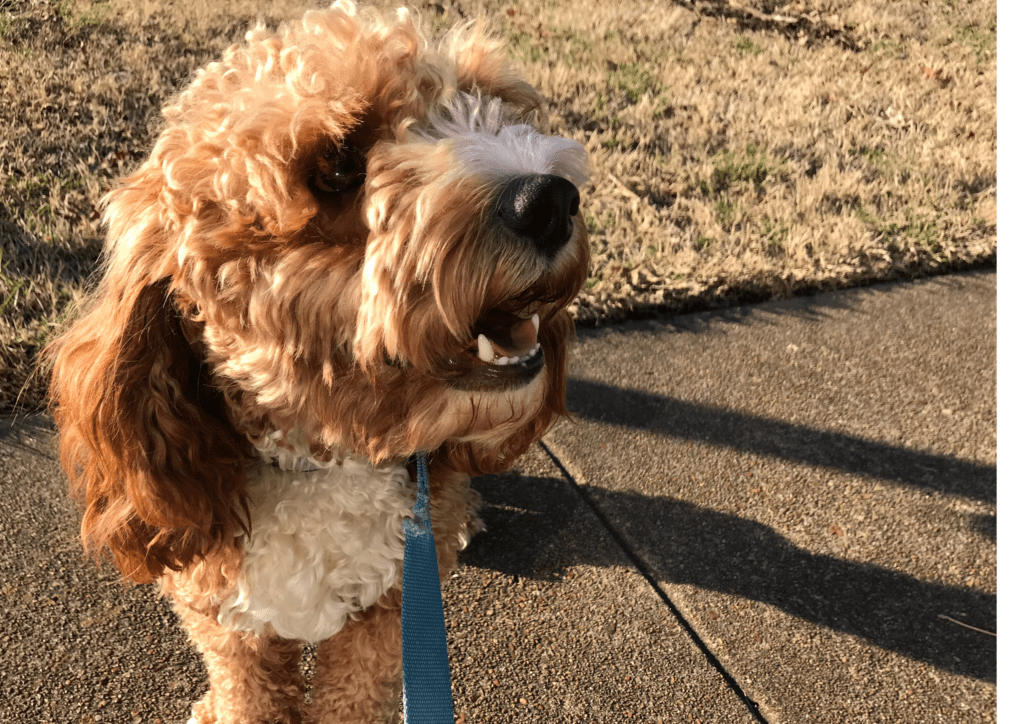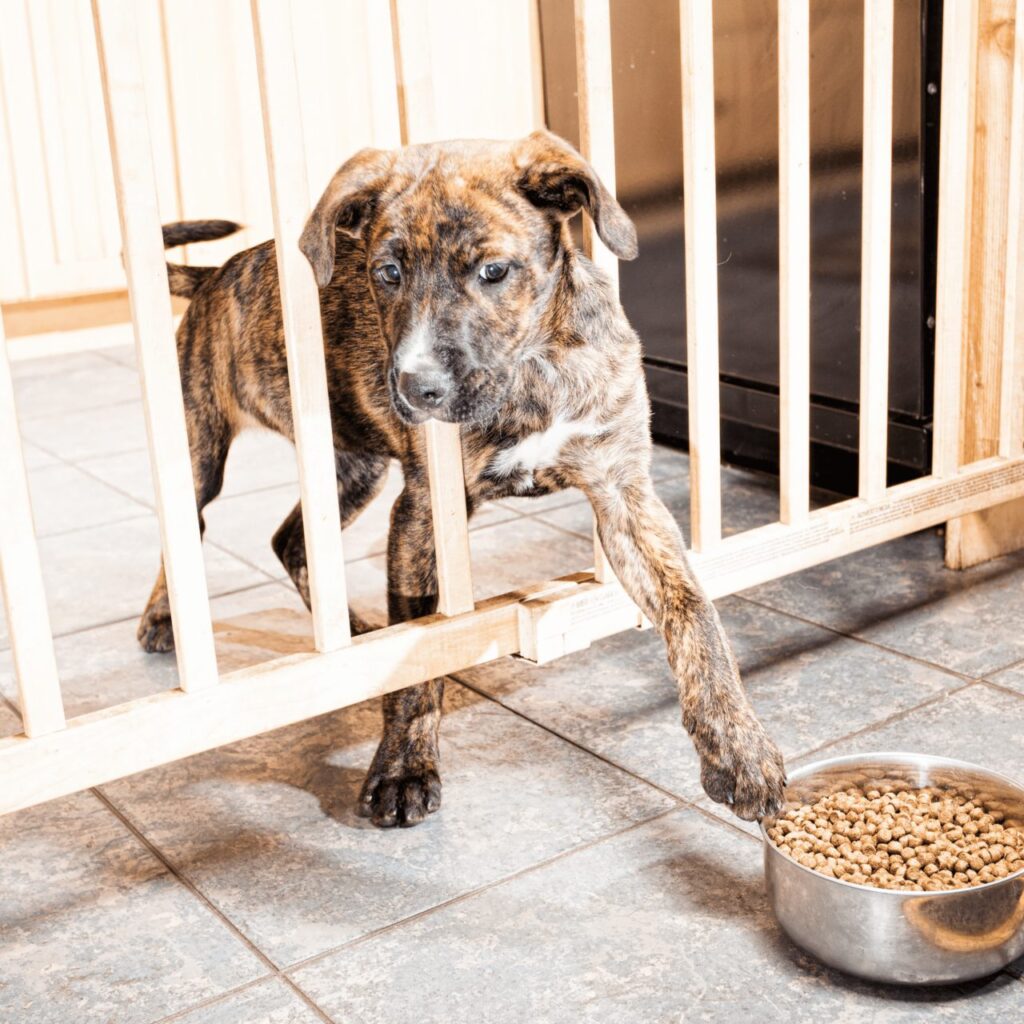
FREE Help I've Got A New Puppy Survival Guide
Sign up to our mailing list and we will give you all you need to know on making your first 7 days count. Includes sleep, feeding, toilet training, chewing and much more!
Recent posts
Blog categories
Search the blog
The Puppy Sleeping Guide
Posted on 13th May 2021

How to get your puppy to sleep through the night? How much sleep does your puppy really need?
When we see cute pictures of puppies sleeping… upside down, with the kids, in their food and everywhere else – it creates a massive oxytocin rush and we can’t help but think “awwww so cute”.
However, sleeping with a puppy can be far from cute. It’s exhausting in those first few days and is almost the equivalent of bringing home a newborn baby!
There is a general misconception that because puppies sleep a lot, they ‘should’ sleep through the night. But, puppies wake frequently and this soon becomes sleep depriving for us.
How much sleep does my puppy need?
Dogs have REM sleep, just like humans do. The difference is that REM sleep accounts for only for 10% of dogs sleep in comparison to humans 25%. This explains why you will see them twitch and be vocal during their sleep.
Puppies require on average 16-18 hours sleep a day. This sounds like a lot but its important to do everything that you can to make sure your puppy doesn’t miss out on this vital need when they first come home.
Fun fact: dogs sleep in 21 minute cycles, meaning every 21 minutes, they will be in a lighter sleep meaning they can be easily disturbed.
How do I set my puppy up for successful sleeping?
In the first few nights of your puppy’s arrival, its essential that they feel safe and secure if they are going to be able to sleep. Remember, during this time your puppy may feel unsettled due to their new surroundings and being away from their mum. Its important to create a safe space close to a human where if they wake up, they can be comforted and reassured quickly and effectively.
Here are our tip tips for ensuring your puppy gets adequate rest:
- Create a safe space –
Crates are generally a great safe space for puppies but don’t lock them in – let them have access to toilet areas, water and other basic needs. Make the crate warm and snuggly, adding a hot water bottle on colder nights is a great way to keep your puppy toasty now that they no longer have the body warmth of their siblings. Have the crate as close to you as you can. Consider adding something to the crate that smells of you. A T-shirt you have been wearing is a good one, the scent will provide extra comfort. You can move the crate further away from you as your puppy settles over the first few weeks. For more info see our crate training blog. - Create a daytime resting space –
We get it – the kids are home, your working from home, there are constant Amazon deliveries and your is puppy awake for large parts of the day. Create a space where your puppy can rest, undisturbed from the comings and goings of the house. Consider having some background white noise playing. Avoid areas such as doorways or passageways where there is a lot of foot traffic during the day. This can be the same crate you use at night – just move it during the day. - Create a routine –
Just like humans, it doesn’t take puppies long before they need a rest. It is better to create a routine for your puppy rather than let them fall asleep wherever they like. If you see them doing this, gently pop them into their safe space that you have created and let them settle there. Remember to warm it up! - Set your alarm –
Puppies will need to pee during the night so set your alarm and make sure you let them out. Take time to settle them again before you go back to bed. Re-warm the crate for them again if it is cold. You wouldn’t leave a child to cry all night so please don’t do this with your puppy. - Limit touching –
Puppies are cute and we love to touch them – a lot! But guess what, dogs are not bred to be constantly touched by humans. We recommend only touching your puppy if they instigate it otherwise leave them alone. This is even more important if you have children living in the house. The old adage of “let sleeping dogs lie” is there for a reason! - Chewing –
Another fun fact – chewing is a natural endorphin releaser in dogs. If you settle your puppy with something good to chew on, you will find they will sleep better – again, just like a dummy for babies. Our recommended bestsellers are yak chews, split antlers, horns, frozen carrots, frozen rope toys and olive branches.
We would love to hear how your puppies are getting on following our tips. We welcome you to post pictures of your puppies having a dream on our Facebook page or on Instagram.
Check out our Youtube channel, a great resource for training tips and tricks.
If you are experiencing sleep struggles with your puppy, contact us to discuss how we can help you – virtually.
Email: clair@talktothepaw.io | Mobile: 07969 036789 | Privacy Policy


